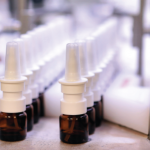NEW YORK (Reuters Health)—Sifalimumab, an anti-interferon alpha monoclonal antibody, may lead to some improvement in patients with systemic lupus erythematosus (SLE), according to a new trial.
In a paper online on March 23 in Annals of the Rheumatic Diseases, Dr. Munther Khamashta of King’s College London and colleagues note that treatment of SLE presents a challenge “because of the suboptimal efficacy of standard-of-care medications and the serious adverse events associated with their use.”
Anti-interferon alpha monoclonal antibodies have shown promise in this regard and the team sought to determine the efficacy and safety of three fixed doses of sifalimumab in moderate to severe SLE (sifalimumab is not currently being pursued by its developer, AstraZeneca).
In this Phase 2b study, a total of 431 patients were randomized to receive monthly doses of 200, 600 or 1,200 mg of the agent or placebo.
At one year, compared with placebo, a greater proportion of active-treatment patients achieved a response as determined by an SLE Responder Index. This amounted to 45.4% with placebo, 58.3% with 200 mg, 56.5% with 600 mg, and 59.8% with 1,200 mg. The difference between the placebo group and the 1,200 mg-dose group was significant (p=0.031), while the others were not.
Other improvements with various doses of the active agent were seen in the Cutaneous Lupus Erythematosus Disease Area and Severity Index score, the Physician’s Global Assessment and the British Isles Lupus Assessment Group-based Composite Lupus Assessment.
However, “Although the 1,200 mg dosage provided the most consistent results,” say the researchers, “no clear sifalimumab dosage effect was observed in the study.”
“These potentially promising results are important in early drug development,” they go on to say, “but are not definitive until prospectively replicated in larger studies with a more stringent statistical significance level.”
In fact, AstraZeneca has stated in a report that, “The company does not currently intend to further develop sifalimumab in lupus, and any future decisions about this molecule in other potential indications will be made based on further examination of available data.”
The study was funded by MedImmune, a development arm of AstraZeneca. Dr. Khamashta has relationships with these companies as do a number of other authors. Four are employees of MedImmune.
Dr. Khamashta did not respond to requests for comment.


